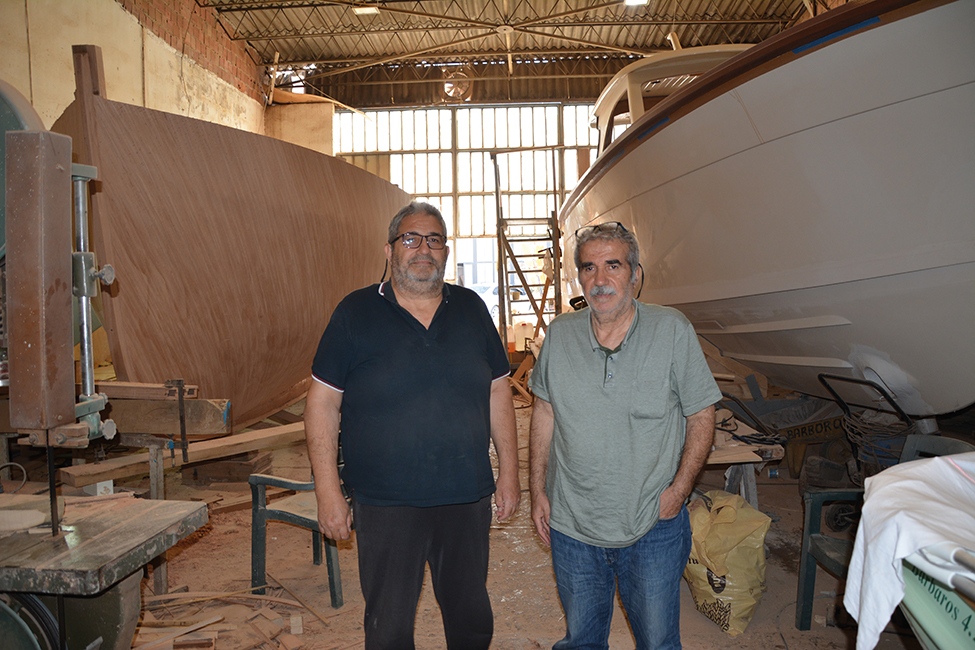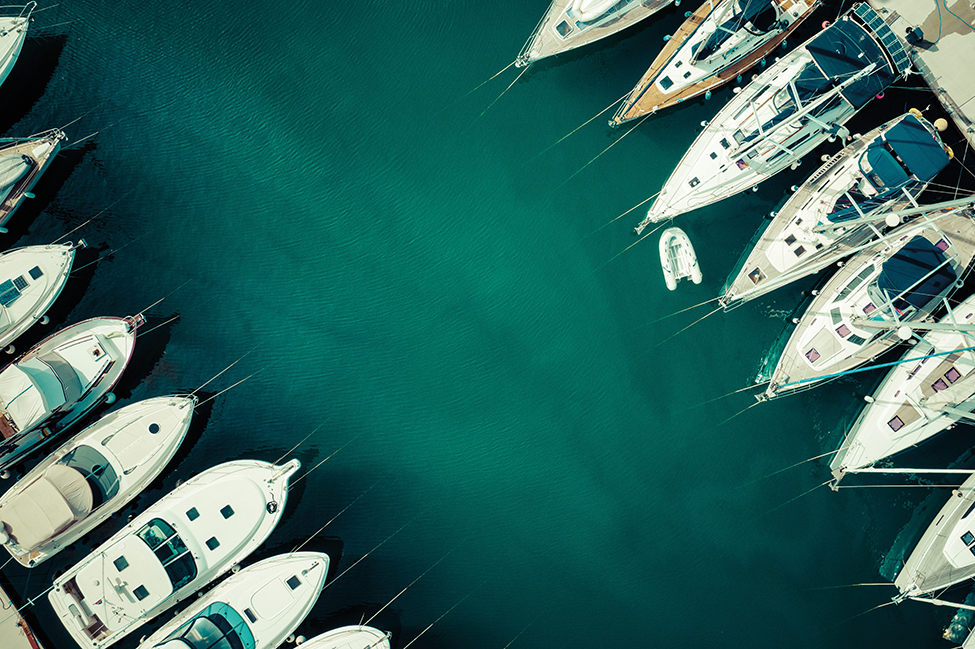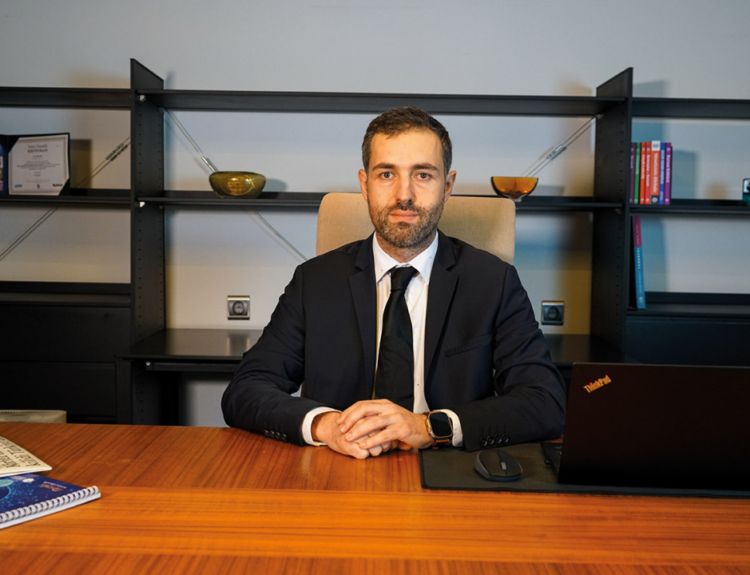The Turkish yacht industry, which stands out for its craftsmanship-based production, commitment to high quality, and export strength, is gaining increasing influence in the global market. In 2024, Türkiye produced 102 superyachts, rising to second place globally in this sector; yacht, boat, and dinghy exports saw an 8.5% increase, reaching a volume of 442.4 million dollars.
Türkiye has made a remarkable breakthrough in the yacht industry in recent years, becoming one of the world’s leading centers for yacht production thanks to its manufacturing power, competitive pricing structure, skilled craftsmen, and project-based flexibility.
According to the 2024 Yacht Market Report and 2025 Sector Expectations published by Türk Loydu, which was established in Istanbul in 1960 to ensure safety and raise standards in the maritime, construction, and industrial sectors, Türkiye surpassed the Netherlands with 102 yachts produced in 2024, becoming the world’s second-largest producer of superyachts after Italy. This achievement once again highlights the high-quality production capacity and success of Turkish shipyards in customizable projects. According to the report, over 90% of superyachts produced in Türkiye were exported to key markets such as Europe, Gulf countries, and the United States.
Türkiye is a strong player with its competitive price advantage and extensive production capacity
Yacht production in 2024 attracted attention with the strengths of countries leading at regional and global levels in different segments. Italy maintained its leadership in design and quality, while the Netherlands stood out with its environmentally friendly solutions and innovative production processes. Türkiye, on the other hand, positioned itself as a strong player in the world rankings with both its competitive price advantage and extensive production capacity. Türkiye’s rising graph and investments in the refit (maintenance-renovation) sector became an important factor that will further shape future market dynamics. According to the report’s assessment, the 40-50 meter and over 80 meter segments in the superyacht market stood out with their sales performance and growth potential. While leading countries like Italy maintain their dominance in the 40-50-meter segment, Türkiye’s growing role in the 50-60-meter segment has drawn attention in 2024. Additionally, shipyard hubs such as Yalova and Bodrum saw high demand for refit projects in 2024.
Total ship and yacht exports reached $1.9 billion As of December 2024, total ship and yacht
exports amounted to $1.9 billion, while exports in the yacht, boat, and dinghy segment increased by 8.52% to $442 million. The $442 million in yacht exports was the highest yacht export amount Türkiye has ever recorded. The top export destinations were Norway with 264 million dollars, the Marshall Islands with 254 million dollars, and Italy with 165 million dollars. The strong presence in the Norwegian and Northern European markets was particularly notable.
Increasing customer demand will create new opportunities for Turkish shipyards
The report, which also shares sector-specific targets, emphasizes that Türkiye’s second place in the world rankings for superyacht production will continue to strengthen thanks to its high engineering standards and environmentally friendly production capabilities. The report also highlights that the global economic recovery and increasing customer demand will create new opportunities for Turkish shipyards. It is expected that Türkiye will increase its exports to the Asia-Pacific region in 2025 and benefit from the increase in demand in the ultra-luxury segment. In addition, thanks to hybrid and environmentally friendly technologies, Türkiye aims to increase its competitive advantage in sustainability-focused projects. According to the report’s data, the annual compound growth rate of Türkiye’s yacht market is expected to reach 13.7% between 2024 and 2030.
- This growth is expected to be driven by factors such as;
- Government policies promoting coastal tourism,
- Increasing demand for luxury experiences,
- Investments in hybrid and electric motor systems.
Global success through craftsmanship
To take a closer look at the export potential and transformation of the Turkish yacht industry, we spoke with Mustafa Şişman and Ali Şişman, partners at Barbaros Teknecilik, a company with a long history in the industry, about their production journey, export activities, and craftsmanship-based production approach.
Barbaros Teknecilik, which began its journey in a small workshop in Istanbul and has now transformed it into a success story that has expanded into the international market, is making a difference in the industry with its production approach based on handcraftsmanship. The company, which specializes in customer-focused and project-based production of wooden and polyester boats, stands out for its high-quality standards and export capabilities. Barbaros Boatbuilding Partner Mustafa Şişman shared insights into the company’s development process and key industry assessments with AIMSAD Magazine.
Mustafa Şişman stated, “This journey, which began in a small workshop in Istanbul in 1957, continues today with the same passion. For 28 years, we produced in an area of only 46 square meters. In 1985, we moved to Tuzla and expanded to a larger area. In 1994, we established our family business and have been continuing production at the same address ever since. To date, we have manufactured numerous wooden and polyester boats of various sizes, ranging from 2.20-meter boats to 18-meter motor yachts. We currently operate in a 600-square-meter enclosed area. Since 1993, we have been regularly exporting wooden and polyester-wooden boats to companies such as De Breedendam, Makma, and Bootsman Slopen in the Netherlands.”
“We use only high-quality materials in our production”
When sharing details about the company’s production process, Şişman emphasized that they never compromise on quality in the materials and methods they use and stated, “We use only high-quality materials in our production. We prefer sapele mahogany, Burmese teak, oak, iroko, acajou mahogany, and special marine plywood used in shipbuilding. For adhesives, we use polyurethane and epoxy-based glues. For fasteners, we use chrome screws, bolts, and galvanized nails. We have the infrastructure to bring any project to life, from motor yachts to sailboats, classic boats to custom-made models. As a company, we work entirely on a project basis; every boat is designed and produced specifically for the customer.”
“A large part of this work still relies on craftsmanship”
Mustafa Şişman stated that the company’s production approach is based entirely on knowledge and craftsmanship rather than technology, and that the materials used in production do not simply pass through a machine, but that each part is processed in a special way, using traditional hand tools such as chisels and planes, and that the parts are measured by the craftsman’s eye and shaped by hand. Şişman said, “A large part of this work still relies on craftsmanship. Boat hulls are coated with epoxy; all stages, including sanding, polishing, and assembly, are carried out by our craftsmen. All the machines we use in the production process are domestically produced.”
Mustafa Şişman stated that Barbaros Teknecilik’s main strength lies not in its technical equipment but in the experience of its craftsmen, adding that this knowledge can only be gained over time and that the master-apprentice chain is gradually weakening. Şişman noted that the declining interest of young people in this field poses a long-term threat to production traditions, saying, “If this knowledge is not passed down from generation to generation, our production methods will disappear. Therefore, the vocational education system must be restructured; it should not only impart technical knowledge but also instill production habits based on practical experience. Young people should be involved in production processes at a much earlier age”
“We also shape interior design”
Mustafa Şişman, who stated that they plan not only the exterior but also the interior of the boat down to the smallest detail, said, “The layout of the living areas, the location of the cabinets, and the materials used are designed in consultation with the customer. We produce some parts ourselves in our workshop, while we source other equipment from reliable suppliers, taking into account their suitability for use at sea and their durability. All materials used, whether sourced internally or externally, are processed under our supervision. The installation, layout, painting, and finishing of the interior fittings are also carried out by our skilled craftsmen. Handcraftsmanship plays a key role here, and we work meticulously to ensure everything is in its proper place.”
“We specialize in boats between 5 and 15 meters in length”
Noting that the number of countries producing boats based on manual labor is quite limited, Şişman said, “Europe can do this job with quality, but it has lost its sustainability due to rising labor costs. China, on the other hand, lacks the necessary patience, time, and knowledge. Türkiye, however, is in a position to balance both ends as a production center. To date, we have produced hundreds of boats. We have specialized in boats between 5 and 15 meters in length. Boats produced in this segment are preferred for both individual use and coastal security services. Regular exports are made to markets such as the Netherlands, Germany, the United Kingdom, Belgium, and Japan.






